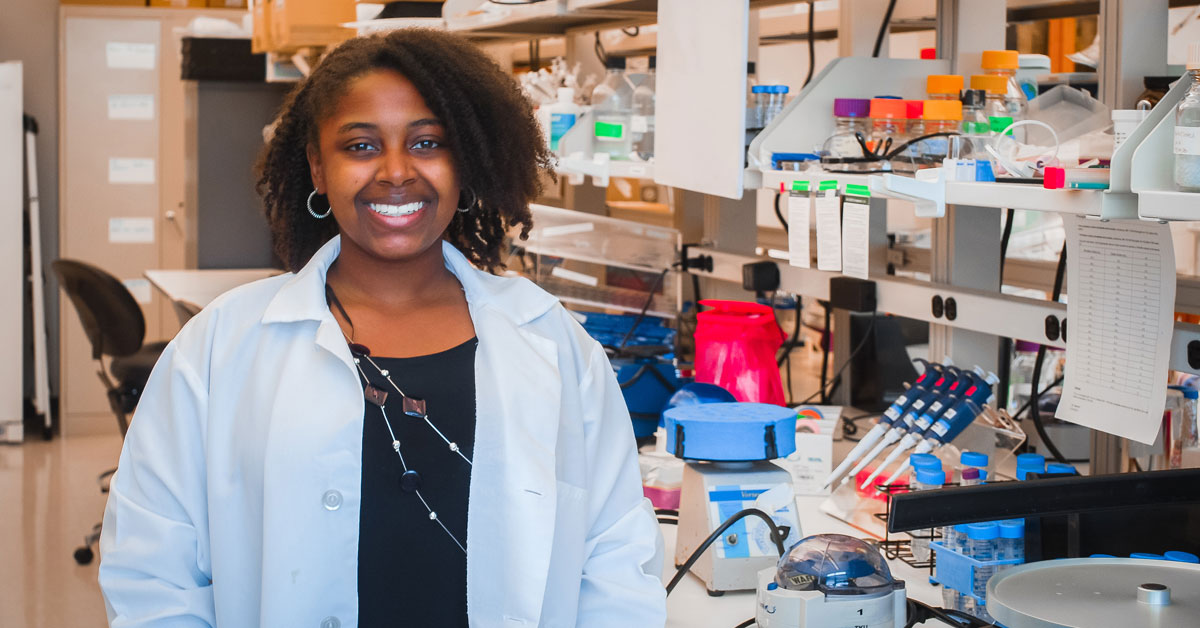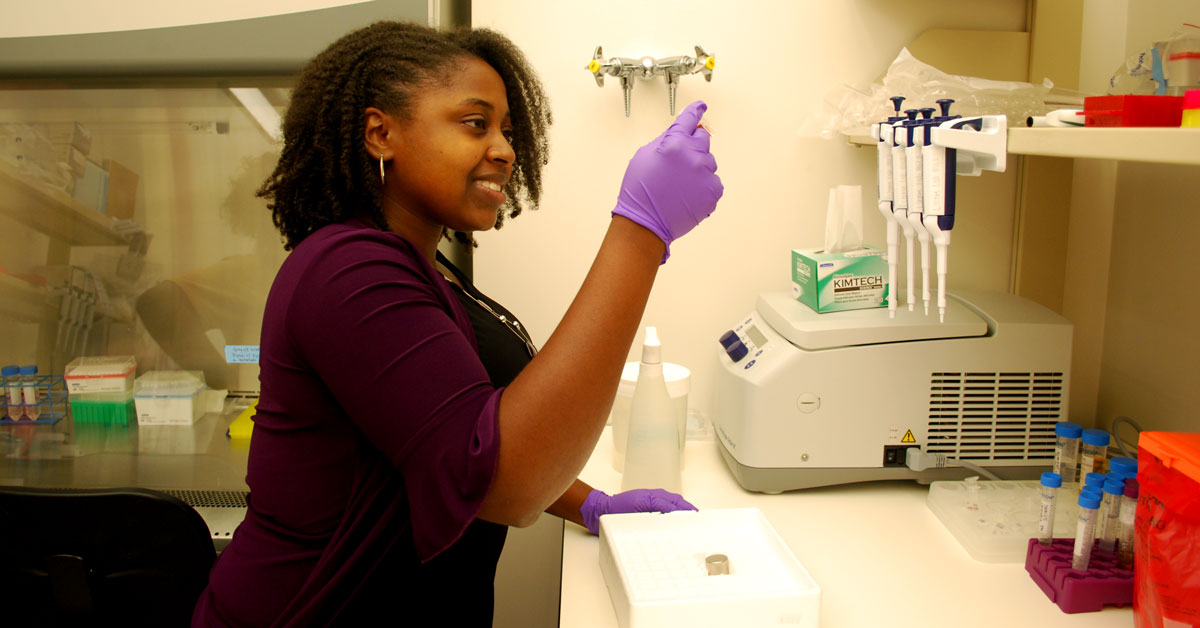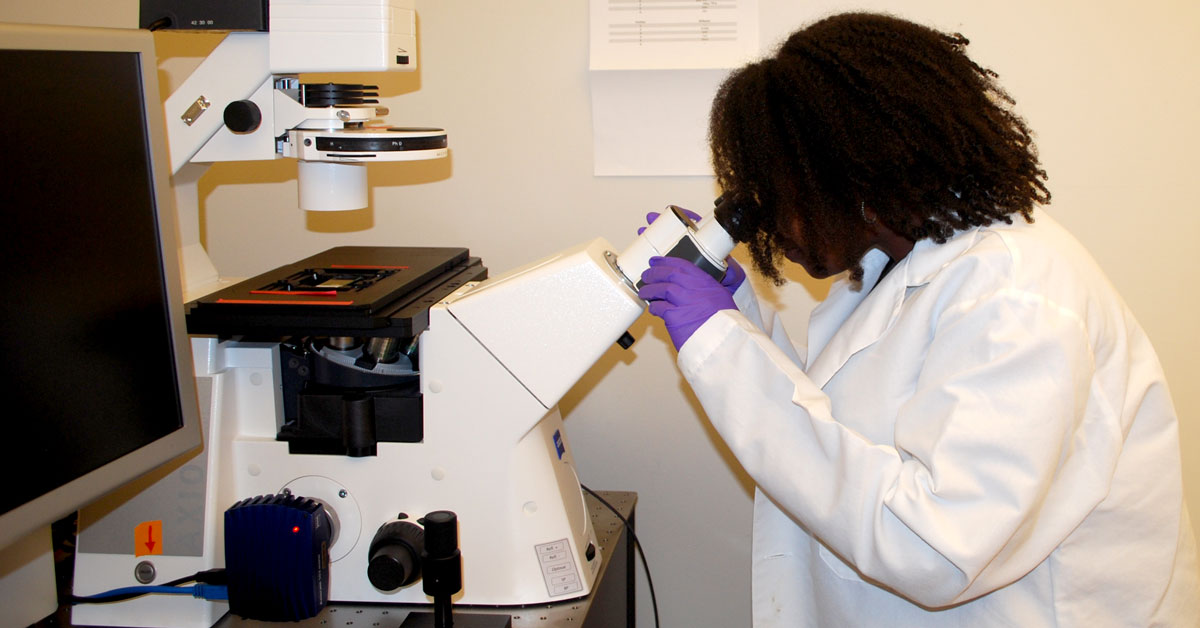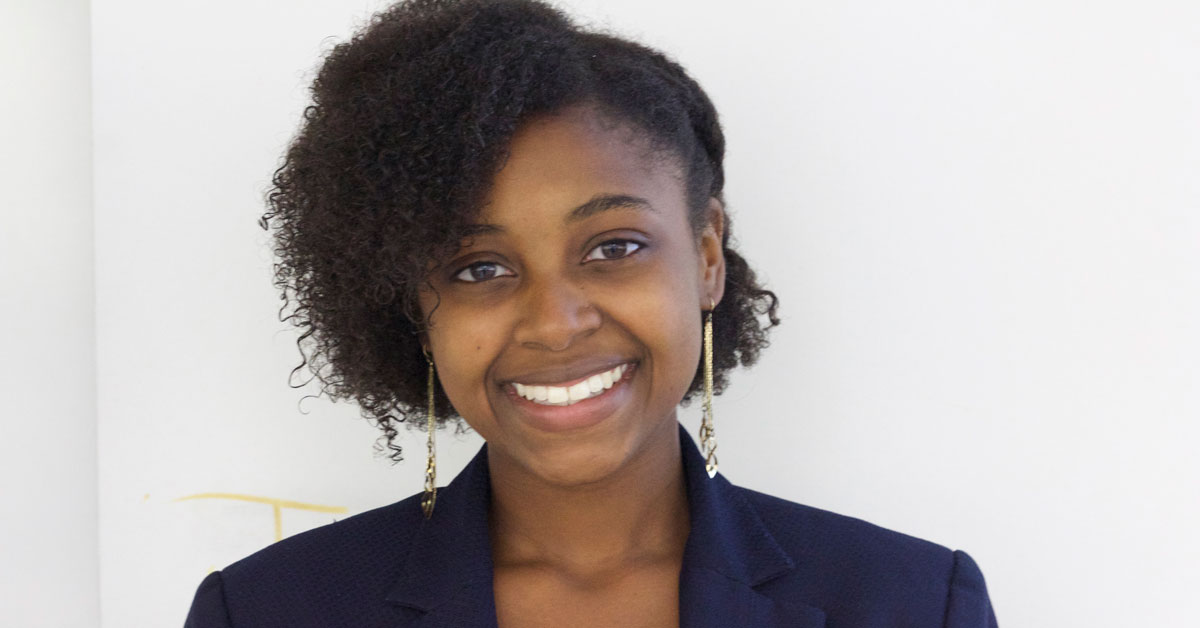Ashlee Colbert wants to help save lives with smart phones

Colbert works for OmniVis Tech, a company ultimately aiming to globalize the massive amounts of research funding from which currently only 10% of the earth reaps the benefit. "What I focus on is detecting malaria using a smartphone device," Colbert said. "It's a smartphone case that you can slide your phone into, and you place a DNA sample into a chip that can be analyzed by the phone's camera. If malaria DNA is present in your sample, the camera can detect, amplify and quantify it." Colbert credits OmniVis CEO and founder Katherine Clayton, a recent Purdue PhD graduate in Mechanical Engineering, with the development and initiation of the project, and it is notable that the majority of the OmniVis team Colbert works with consists of Boilermakers. "The project started with Katherine's idea of particle diffusometry," Colbert said. "We have a different amplification technique than they've used in the past, and that has been really near and dear to me. It has been a lot of fun putting it all together."


In spite of the exhilaration of working on such a revolutionary device, not everything in the process has been easy for Colbert. "A lot of times we'll have individual pieces of the device working, but getting them all to work as one cohesive device is still a challenge," she said. Colbert herself has played a large role in advancing the project during tough times and acknowledges how her determined character makes her an excellent candidate for her work. "There was actually a time where my amplification device wasn't working, she said. It was to the point where my committee decided to move on to something else, but I continued working with it on the side and eventually got it to work, and of course moving forward has been great."
This September, Colbert took her research to a national level to compete at the National Consortium for Graduate Degrees for Minorities in Engineering and Science (GEM) Conference in Los Angeles, California. Her technical paper won third prize.


"Since we were top three, we got to present our research in front of everyone at the conference," Colbert said. "After we presented, there was a recruitment fair with companies and schools and I met people who knew my research. It was great to have conversation starters, and people would stop me to tell me I did a great job. It was like a rejuvenation, which is really good now that I'm in my third year."
Although she is well on her way to becoming a notable member of the biomedical engineering community, she did not initially expect a PhD to be in her future. "I went to a GEM grad lab my junior year in college at the University of Florida, and I met Dr. Howard Adams (who served as GEM Executive Director from 1978 to 1994). He had us say our names and say 'PhD' after it. I said 'Ashlee Colbert, PhD', and fell in love."
At the root of Colbert's success is her insurmountable will to serve the globe. "I'm very determined, and I like to help people," she said. "I didn't want to be a medical doctor, but to be somewhere behind the device that can be administered to billions of people gives me the satisfaction of knowing I'm helping more lives than I could touch as a doctor."
In her free time, Ashlee enjoys playing intramural soccer, volleyball, and flag football with her fellow biomedical engineering graduate students. She is the historian of the black graduate student association, she volunteers as an instructor for the Minority Engineering Program's summer camps, and she is the National Society of Black Engineer's graduate chair. For more information on Ashlee and her graduate program, visit Purdue University's Weldon School of Biomedical Engineering

Source: Ashlee Colbert wants to help save lives with smart phones
